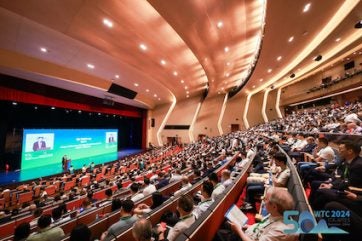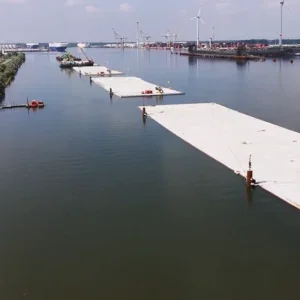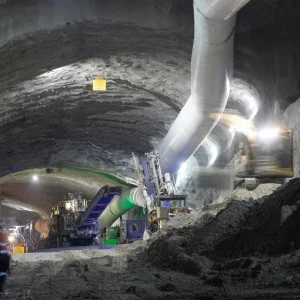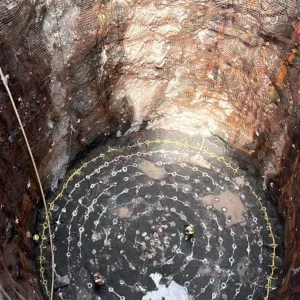
This year’s event, organised by the China Civil Engineering Society, opened in Shenzhen on April 22nd.
The opening ceremony was attended by dignitaries including minister of housing and urban-rural development Ni Hong; UN assistant secretary-general Michal Mlynár; chairman of the China Civil Engineering Society and chair of the WTC2024 Organising Committee Yi Jun; Shenzhen mayor Qin Weizhong; China Railway Group Ltd chairman Chen Yun; ITA president Arnold Dix; attended the opening ceremony and delivered speeches. Wang Hui, vice-minister of housing and urban-rural development Wang Hui; and Shenzhen vice-mayor Zhang Liwei.
The congress, themed Tunnelling for a Better Life, attracted more than 2,700 delegates from 65 countries and regions. A 20,000m2 exhibition area hosted 193 companies from across the global tunnel engineering industry and the congress also featured 195 academic presentations on 15 topics and offered eight technical visits.
Speaking at the opening ceremony, Ni Hong, minister of housing and urban-rural development, said China had become the world leader in terms of the number, scale and speed of tunnel construction. Tunnel and underground engineering projects facilitated efficient resource use, improved livelihoods, and promoted rapid socio-economic development, he said.
Ni stated that China had embarked on a new journey towards building a socialist modernised country and would promote the transformation of urban underground pipe networks, construct urban subways and corridors, and advance the construction of vital urban lifeline safety projects, creating liveable, resilient and smart cities.
He expressed willingness to work with international counterparts to promote the development of high-quality tunnel and underground engineering through technological innovation, green and low-carbon initiatives, and safety management.
UN assistant secretary-general and acting executive director of UN-Habitat Michal Mlynár said the world was not on track to achieve sustainable development goals. There was an urgent need to increase efforts to bridge the infrastructure and investment gap in developing countries and to prioritise climate change and equity in action.
Tunnels and underground spaces were not only engineering marvels but also key tools for achieving sustainable development, he said, adding that integrating underground spaces into urban planning was crucial. Mlynár said UN-Habitat was willing to deepen co-operation with the ITA-AITES to integrate infrastructure projects with urban planning.
By tapping into the potential of underground spaces, tighter communities and high-quality public spaces could be built, advancing the goals of the 2030 agenda and promoting the sustainable development of the tunnelling and underground space industry.
China Railway Group (CREC) chairman Chen Yun said the company was a significant participant and in China’s tunnelling industry. It had built more than 20,000km of tunnels and eight projects had won ITA awards.
Chen said CREC would use international exchange platforms, such as the WTC, to enhance technical exchanges, deepen international co-operation, and work with colleagues from around the world to promote the continuous advancement of tunnel and underground engineering technology.
ITA president Arnold Dix said the Pearl River Delta had undergone rapid modernisation in China, with underground infrastructure playing a crucial role. The region had made tremendous progress in transport and water resource management, thanks to advanced underground tunnel and space engineering technologies.
People also enjoyed a better quality of life through environmentally friendly and climate-adaptive designs, he said.







